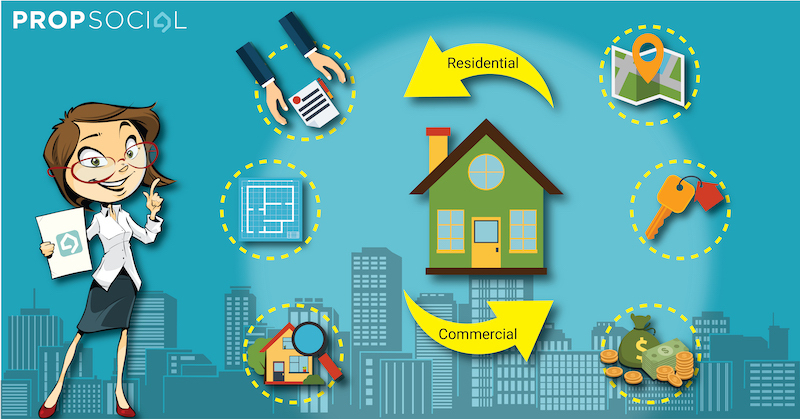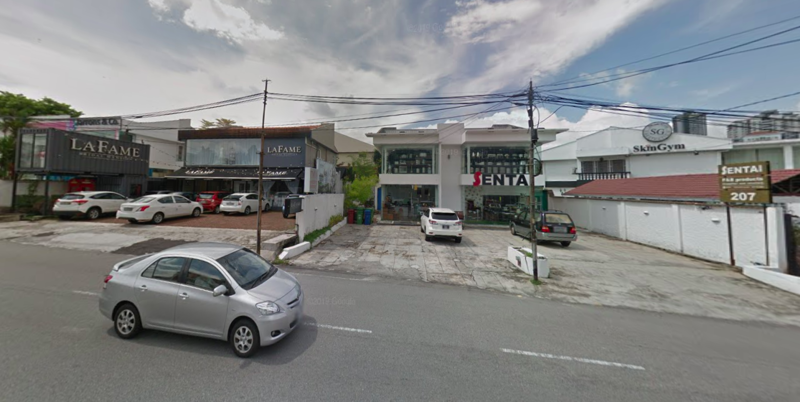
Popular hangout spots close to Kuala Lumpur, like Jalan Telawi in Bangsar and SS2 within Petaling Jaya, are witnessing a noticeable trend wherein rows of houses had been transformed into flourishing business hubs and boutique stores. In fact, many of the shops in SS2 were previously residences. But due to the area’s attractiveness, the homes were turned into various commercial premises that are now visited by many people.
If your house is located within an appealing location, you might also be wondering how you can take advantage of this trend. To help you, we prepared this article that looks at the pros and cons of transforming a residential property into a commercial one. We have also sought the advice of experts and people who have successfully made the move, regarding the cost of conversion, its requirements, the time it took, and the challenges they encountered.
Pros of Converting to Commercial
Higher Rent
A common reason property owners seek to change the land zoning is to generate a higher income from their former homes. For instance, commercial properties like offices and shops typically command a higher monthly rent than residential properties.
Rent-free Business
If you intend to run the shop by yourself, your business would be more financially feasible in the long run as you own the property and you don’t have to pay any rent.
Price Appreciation
Strategically located shops and offices are highly sought-after. The price of your former home can significantly increase after it is repurposed for commercial use and the area sees lots of human traffic. This can also be a wise move if you’re hoping to sell the property to a company that wants to redevelop the area.
Cons of Converting to Commercial

Image source: maps.google.com.my
Higher Utilities & Taxes
Water utility firm Syabas and power company Tenaga Nasional charge a higher rate for commercial properties as compared to residential ones. Local authorities also impose higher annual property taxes on business establishments.
Requirements and How Long It Took
If you’re a novice in the property industry, converting a residential property into a commercial one can be daunting. Apart from the physical renovation, there’s a lot of paperwork involved.
Grind22 cafe’s owner Effendy Nazri, who converted his home along Lorong Maarof in Bangsar into a coffee shop, shared that it typically takes about two to three months to obtain the necessary documents, depending on how quickly the local government can act on them. These included approval permits, architectural plans and zoning plans, as well as mechanical and electrical (M&E) plans.
Meanwhile, Dato’ Tan Su Cheng of PDI Design & Associates, revealed that the conversion and renovation of his property in Bangsar took 12 months. Interestingly, his two-storey building with an area of 3,000 sq ft was transformed into a 3.5-storey structure spanning 11,000 sq ft.
Nazri also said property owners considering to convert should first thoroughly research the permitted area quota for certain businesses as these depend on the nature of the commercial operations.
Although PDI Design’s Tan said the conversion of his property proceeded smoothly, Nazri, on the other hand, said they encountered issues on the auditing and planning documents and its submission to the fire department (Bomba).
Property Renovation
In addition, Nazri shared that they had faced issues in carrying out the renovation and construction of their property, as it required hiring experienced professionals known for their good quality workmanship.
As such, Nazri advises those looking to convert their homes to hire experts even if it means higher costs. Prepare to fork out more money to get better results, whether for an agent, runner or a consultant. This can also save you a lot of time as adept professionals work more efficiently and they know who to consult in the industry due to their connections.
Essentially, changing the residential status to commercial is not just changing the label on a zoning map, you still need to carry out actual physical changes as well. This is because who would want to rent your home as an office or shop if the ground floor still looks like a living room? If your home is located in a historical area, you may also need to conserve the property’s facade and doing so is not cheap.
Nazri said property owners considering converting their homes should first thoroughly research the permitted area quota for certain businesses as these depends on the nature of the intended commercial operations. You may also need to install safety and anti-nuisance features, like soundproofing. Otherwise, your business could be closed down due to complaints from your angry neighbours.
Conversion Cost
According to Maxime City Consultancy, the cost of converting a house into a commercial premise can range from RM25,000 to RM50,000 depending on the property’s area and necessary renovations.
Another factor affecting the price tag is what kind of business will operate in the property. For instance, if you want to sell lunch, you will need to obtain a hawker stall license, while a larger dining establishment requires a restaurant license.
Need for Public Consultation
If you live in a residential neighbourhood and you’re planning to turn your home into something that could cause public nuisance such as a noisy bar, you may need to seek the approval of your neighbours.
For instance, in Kuala Lumpur, any business that wants to transform a residence into a commercial establishment must put up a signboard seeking public feedback before any renovation or construction is done.
However, different places can have different rules so it’s best to consult the local authorities before converting and renovating your property. For example, many local governments will only consider approving the conversion if the property owner can show them that there is no demand for the home at its present state. Also, if your property is close to schools or mosques, there could be strict requirements for conversion.
Furthermore, you should determine if there are existing planning or zoning constraints that can impact whether a building can be renovated, torn down or redeveloped. Visiting the offices of local officials can help you learn what’s allowed or prohibited.
To get more guides like these, please visit PropSocial’s discussion page.
(Written by G. Zizan, 29th October 2019)
